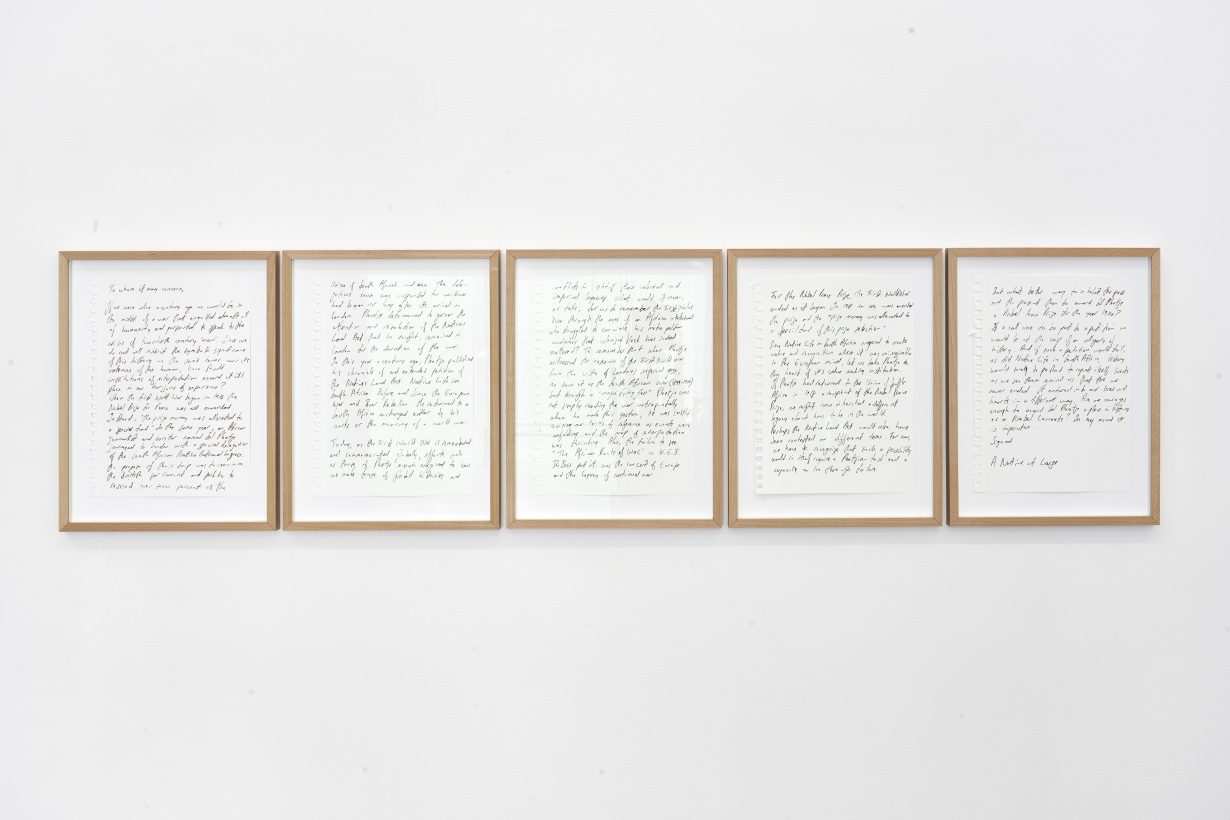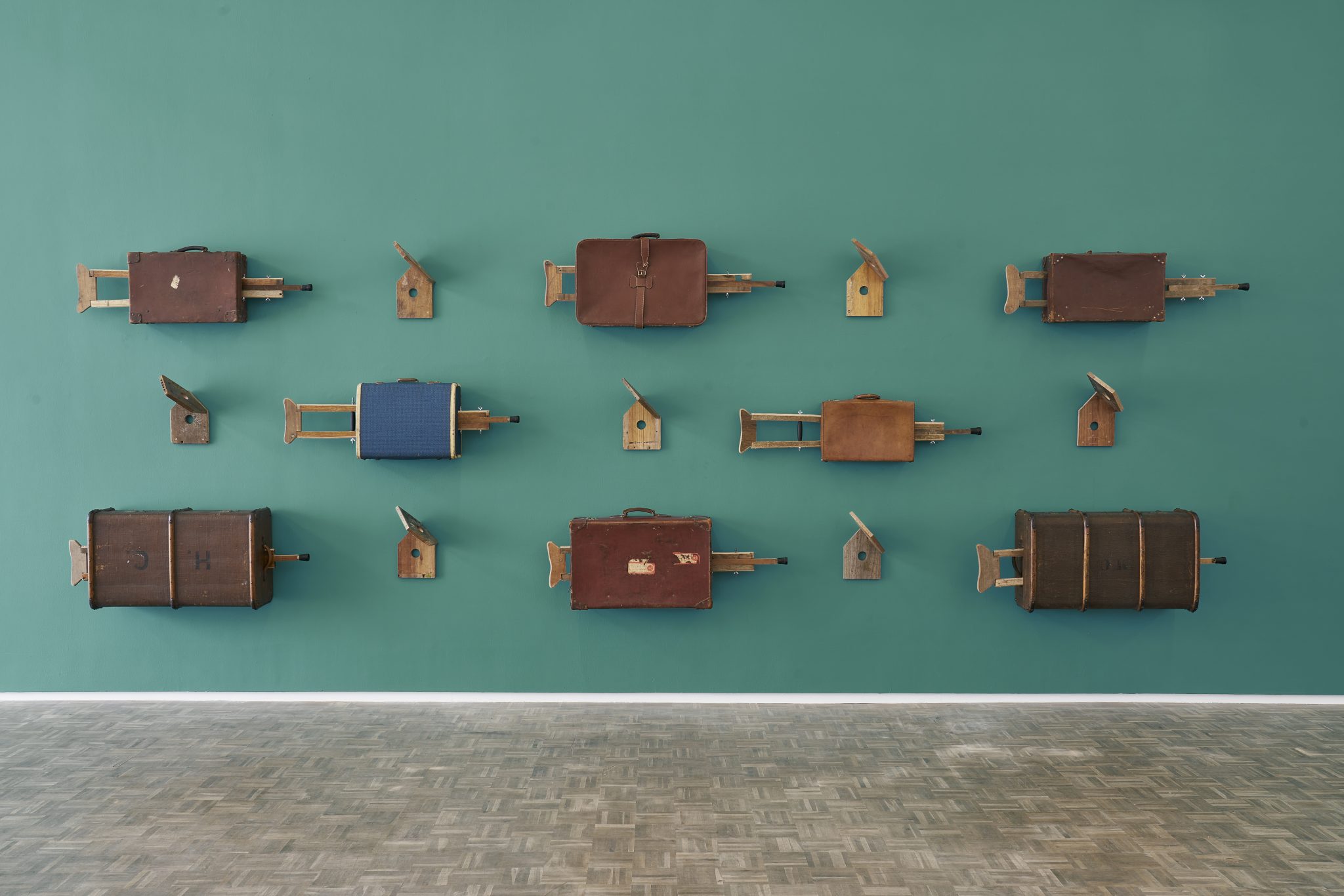Bring Back Lost Love at Blank Projects, Cape Town conjures the South African experience as an intellectual struggle against racism
Kemang Wa Lehulere’s aesthetic is one born almost entirely out of a South African experience. In many ways Bring Back Lost Love is an attempt to conjure with the past through the everyday artefacts of the Black experience under apartheid, gathered and arranged in installations on walls, floors and tables throughout the gallery. In Reddening of the Greens 2 (ii) (2021), wall-mounted found objects including wooden crutches protruding from old suitcases summon the trials of migrant labourers and miners disabled from work in criminally unsafe conditions. Rural and township schools are suggested in Notes 1–13 (2017–21), a series of chalk and white-paint drawings on uniformly sized black boards lined up along gallery walls.Ceramic black German Shepherds scattered throughout his installations are perhaps the symbol of apartheid police brutality.
But Wa Lehulere is not simply working with the signifiers of repression; he also elicits the creative reaction to that oppression, summoning a Black intellectual tradition that was engendered by the likes of Solomon Plaatje, R.R.R. Dhlomo (both of whom he regularly mentions) and the half-Irish half-Herero Robert Grendon (Wa Lehulere’s father was also Irish). The exhibition is, on certain terms, an evocation of their intellectual struggle against racism, and a tradition that produced translations of Shakespeare, epic poetry, plays, novels and most importantly journalism and letters of passionate protest – most of which are now consigned almost to oblivion in South African archives.

Perhaps the most overt allusion to this forgotten tradition is Letter to the Nobel Committee (2016), handwritten on pages torn from a notebook and framed in several panels. The letter advocates for the awarding of the Nobel Peace Prize to writer and politician Plaatje. This is no frivolous artistic posture: even British prime minister David Lloyd George, who met Plaatje in 1919, noted that he was a hugely impressive leader of the early peace-seeking African National Congress (ANC).
Wa Lehulere intuitively reworks forgotten intellectual interests and concerns. His ink drawings of plants in ERF 1–18 (2019–21) can be seen as a surrogate for Grendon’s book on botany, The Illustrated Genera of South African Flowering Plants, referenced in contemporaneous sources but otherwise entirely lost to history. Grendon, who taught at the school of ANC leader Albert Luthuli (who did win the Noble Peace Prize) and was a fundamental figure in this South African Black intellectual tradition, is completely forgotten, without even a surviving photograph to represent him. It is precisely this form of elision and loss that Wa Lehulere, in Bring Back Lost Loves, provokes back into being.
Bring Back Lost Love at Blank Projects, Cape Town, through 6 April
